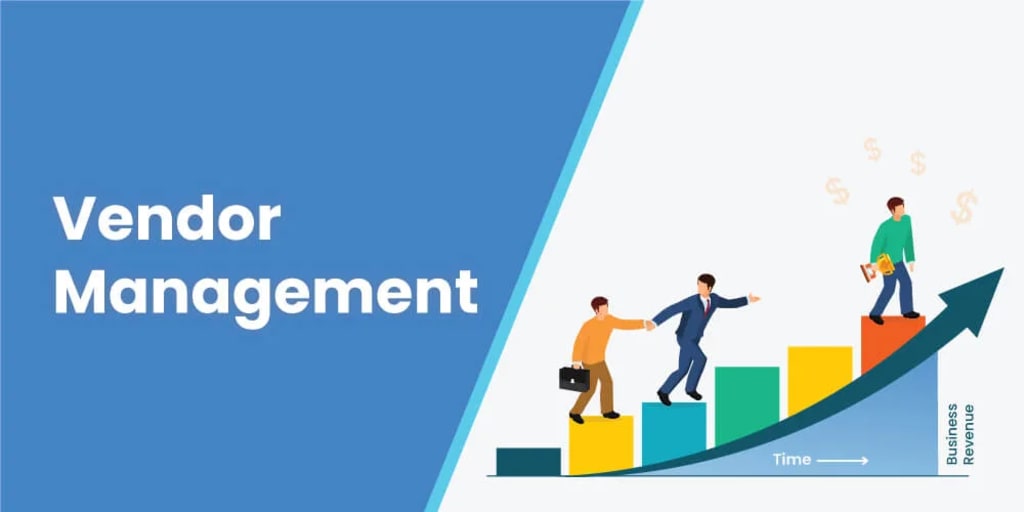What is Vendor Management? Find out what it is and Why it is Important!
What is Vendor Management?

Vendor Management
Vendor management is a critical component of many businesses, large and small. It involves the process of overseeing and managing the relationship with external vendors who provide goods and services to a company. Vendor management software is a tool used to help businesses manage the relationships between vendors and other stakeholders. In this blog post, we will discuss what vendor management is, why it is important, and how vendor management software can help you streamline the process.
Table of Contents
The Importance of Vendor Management
The Vendor Management Software
What is Vendor Management?
Vendor management is the process of strategically managing relationships with vendors and suppliers in order to maximize value from their services or products. This involves finding, evaluating, engaging, and monitoring vendors in order to ensure that they are meeting company goals and providing quality services or products. Vendor management helps companies better manage their vendors and ensure that they are delivering what they promise.
The Vendor Management Process:
Vendor management involves a number of steps, which may vary depending on the nature of the vendor relationship. Generally speaking, the vendor management process includes the following steps:
Identifying and Defining Vendor Requirements: Companies must first define what they need from their vendors in terms of service or product delivery. This should include any expected goals, deadlines, and milestones.
Finding and Evaluating Vendors: Once the vendor requirements have been identified, companies can then begin to search for potential vendors who meet their needs. During this stage, it is important to evaluate each vendor’s credentials, pricing structure, past performance, customer reviews, and any other relevant criteria in order to select the best fit for the company’s needs.
Negotiating and Entering Into an Agreement: After selecting the most appropriate vendor, companies can then begin to negotiate terms of an agreement. This will include outlining the expectations for both parties and establishing any payment or delivery schedules.
Monitoring Performance: Once an agreement has been reached, companies must then monitor their vendors closely to ensure that they are meeting their commitments. This includes tracking progress, timelines, and quality control measures to ensure that vendors are delivering on time and as promised.
The Importance of Vendor Management:
Vendor management is an essential part of any business, as it allows companies to develop more efficient processes, reduce costs, and ensure that they are receiving quality products and services from their vendors. Additionally, by carefully managing vendor relationships, companies can avoid costly mistakes or disruptions in service or delivery. As such, effective vendor management can help businesses remain competitive in today’s marketplace.
The Importance of Vendor Management
Vendor management is essential for businesses of all sizes, as it helps maintain a strong working relationship between the company and their vendors. Vendor management ensures that both parties understand the expectations of the other and what is expected to be delivered. It also helps ensure that all contracts are followed, that vendors are paid on time, and that vendors provide quality products and services.
Without proper vendor management, companies can find themselves dealing with late payments, subpar services, or even legal disputes. Additionally, without an effective vendor management process in place, it can be difficult for companies to know when to replace a vendor, how to negotiate better terms, and how to maintain their desired level of quality. Proper vendor management can help organizations avoid these issues and increase efficiency.
Vendor management also helps companies stay compliant with laws and regulations. Companies need to adhere to a wide range of governmental requirements, including environmental regulations, labor laws, and health and safety regulations. Without proper vendor management, companies may unknowingly violate these laws and put themselves at risk of penalties.
Finally, vendor management helps companies save money. By properly monitoring their vendors, companies can get the most value out of their business relationships. For example, they can identify areas where costs can be reduced or identify where vendors may be offering discounts or better terms than their competitors. This helps companies ensure that they are getting the best value for their money.
Vendor management is critical for any organization looking to succeed in today’s competitive environment. It helps maintain strong vendor relationships, stay compliant with laws and regulations, and ensure that the company is getting the most out of its business relationships. With proper vendor management in place, organizations can get ahead of their competitors and stay ahead for years to come.
The Vendor Management Process
Vendor management is an important part of any business or organization. It involves a series of steps to ensure successful relationships with vendors and service providers, which can help businesses achieve their goals in terms of cost savings, customer satisfaction, and quality. The following steps are involved in the vendor management process:
Establishing Goals: The first step in the vendor management process is to define and document your business goals for working with vendors. This will help you establish the criteria for selecting vendors and negotiating contracts.
Identifying Vendors: Once you have established your goals, it’s time to identify potential vendors that can meet your needs. You can search for vendors online, contact industry associations, or reach out to industry experts.
Evaluating Vendors: After identifying potential vendors, you should evaluate each one based on criteria such as price, customer service, and product quality. This will help you narrow down the list of viable options and make sure that you choose a vendor that fits your needs and budget.
Negotiating Contracts: Once you have selected a vendor, it’s time to negotiate the contract. This involves setting payment terms, defining roles and responsibilities, and agreeing on service level agreements.
Managing Vendors: After the contract has been signed, it’s important to manage the relationship with your vendor. This includes tracking performance, resolving disputes, and evaluating vendors periodically to ensure they are meeting your needs.
By following these steps in the process, you can develop successful relationships with vendors and ensure that your business goals are met.
The Vendor Management Software
The vendor management software is a great way to automate and streamline the entire process of managing your vendors. It helps you keep track of all the details associated with vendors, such as contract terms, contact information, and payment status. Additionally, it can help you quickly respond to vendor inquiries, provide up-to-date data on vendor performance, and optimize your procurement strategy.
There are a variety of different software solutions available to manage your vendors. Many of these systems are cloud-based and have built-in tools that make the process easier, such as automated payment processing, integrated contract tracking, and automated reporting. Additionally, most systems allow you to customize the interface to suit your specific needs and preferences.
Vendor management software also allows for more efficient communication with vendors, as you can easily track all communications in one place. This makes it easier for both parties to access important information quickly and stay updated on any changes or updates.
Overall, vendor management software is an invaluable tool for managing your vendors and helping you create an efficient procurement process. With the right system in place, you can easily save time, money, and ensure that your vendors are providing the best services at the best prices.
One of the software that I suggest is Melio Payments. It has some great features when it comes to Vender Management. It is user friendly as well as with some additional functions that can help you with your business. Please click here to know more about that tool.





Comments
There are no comments for this story
Be the first to respond and start the conversation.